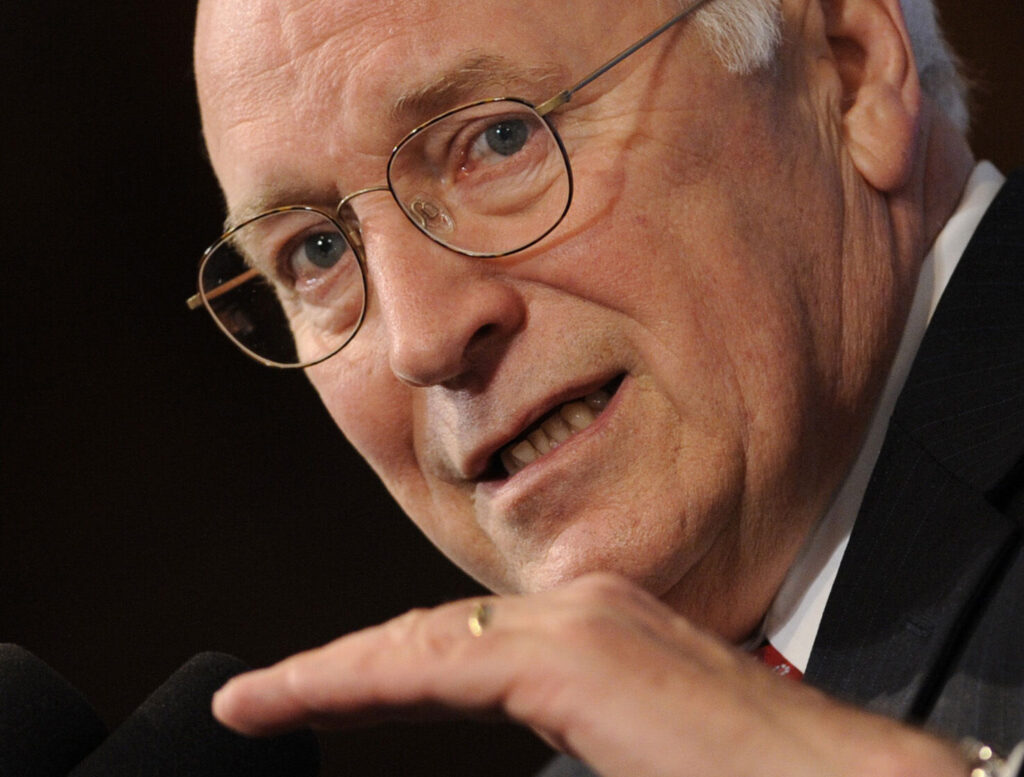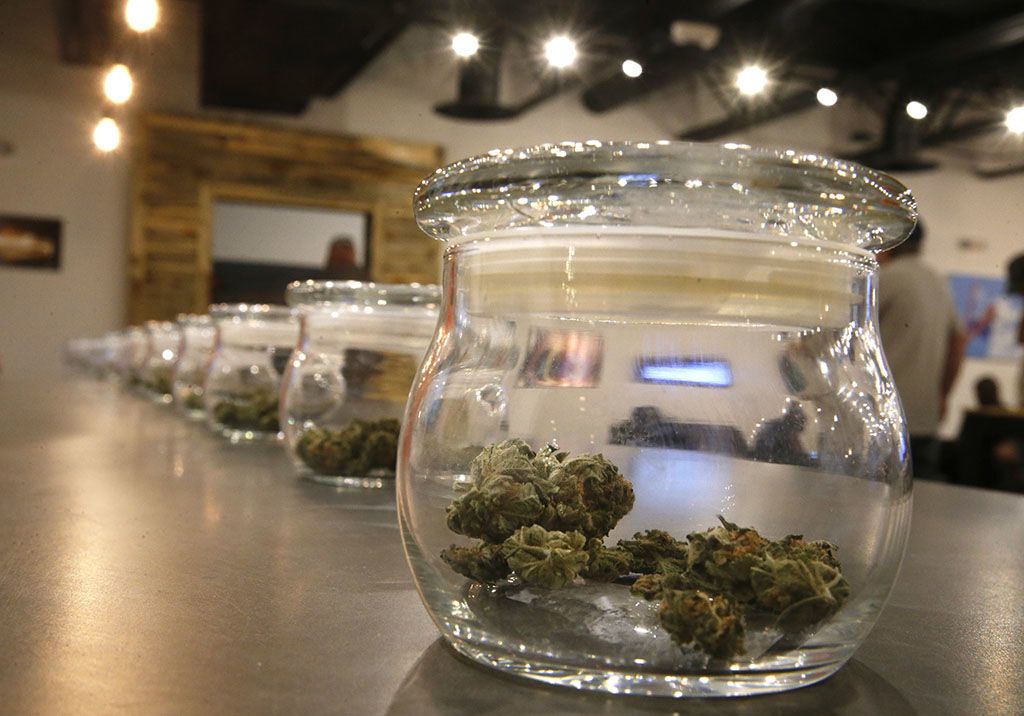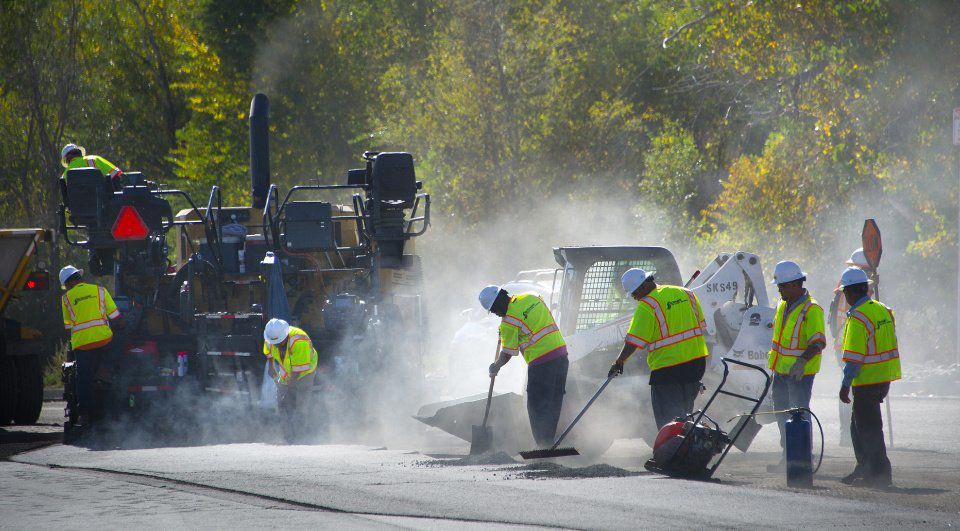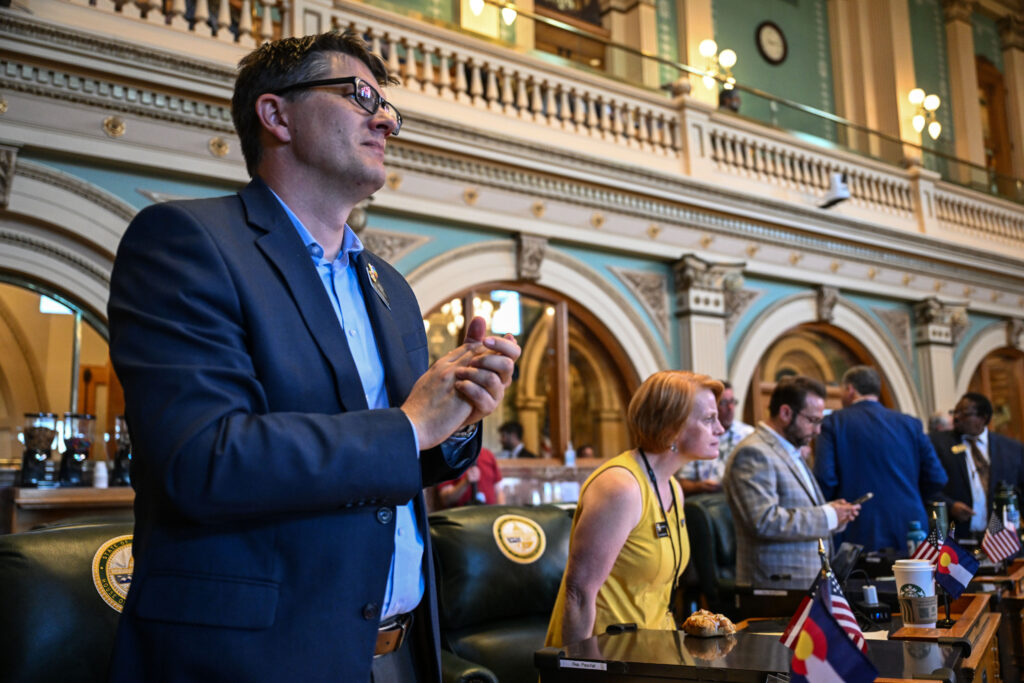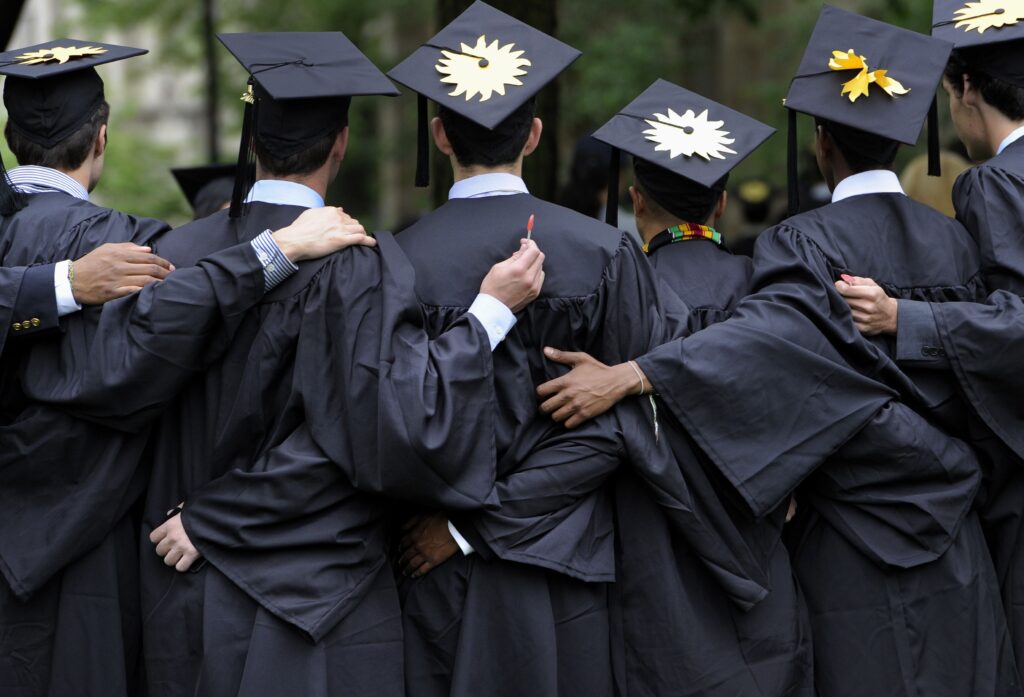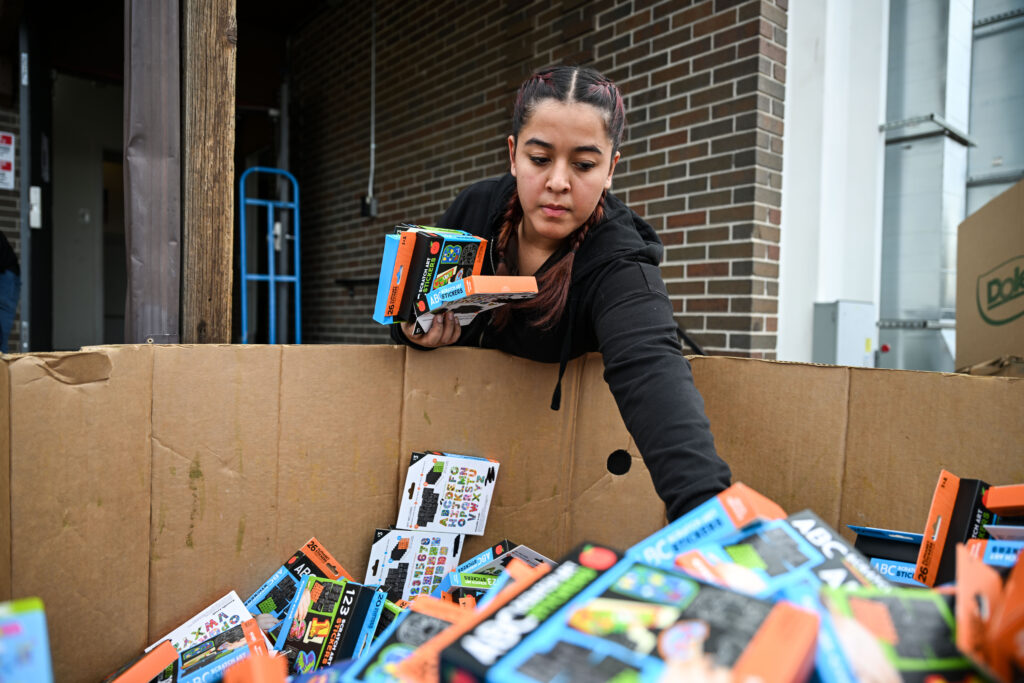‘Skinny kid from Northeast Denver’ sworn in as mayor
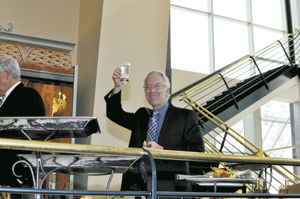
See July 22 Print Edition for additional photos
More than 25 years after he told a television reporter he intended to become the city’s first black mayor, Michael Hancock, 41, was sworn in as Denver’s 45th mayor on July 18 before a packed house at the Temple Hoyne Buell Theater.
“No one ever thought that this skinny kid from northeast Denver would rise to achieve his dreams of becoming mayor,” Hancock said in his inaugural address. “But thanks to my faith and my family, thanks to the support of neighbors, schools and people all across our great city, I have become the person I am today.”
Although he barely missed one element of his childhood dream — former Mayor Wellington Webb, the city’s first black mayor and a key Hancock supporter, sat in the audience alongside former mayors Federico Peña and Gov. John Hickenlooper — Hancock has the distinction of being the first member of City Council elected to Denver’s top job.
Hancock emerged in June from a bruising, month-long campaign against former state Sen. Chris Romer following a six-month slog that saw as many as a dozen contenders for the open seat. Outspent nearly 2-to-1 by Romer, the son of a former governor, Hancock narrowly made the runoff but then ran away with the final vote, winning by 12 points.
In the closing days of the campaign, Hancock ran a television commercial featuring footage of himself at age 15 explaining his intention to become mayor one day.
The elaborate inauguration ceremony also saw the entire City Council, including six new members, and the city’s incumbent auditor and a new clerk and recorder sworn in, but the spotlight was on Hancock.During his roughly 15-minute inaugural address, Hancock acknowledged his predecessors and articulated his intention to move the city ahead. Listing the vision and accomplishments of mayors stretching back a century, he applauded the city’s three most recently elected mayors for positioning Denver as an international force and regional partner.
“And, finally, I am ready for all of us to deliver a great city,” he told the crowd to thunderous applause.
Enumerating a series of proposals intended to “deliver a world-class, 21st Century city that we can all be proud of,” Hancock vowed to build a “bustling aerotropolis” surrounding Denver International Airport and develop a 22-mile “corridor of opportunity” between downtown and DIA. He pledged to complete the redevelopment of the Union Station transit hub, see the FasTracks system to completion and strengthen bonds with neighboring cities and other levels of government.
Hancock even promised a tricky “win-win-win” solution to Denver’s potential loss of the iconic National Western Stock Show — and a lavish, stand-alone hotel and convention center — to neighboring Aurora. In the process, he said, his administration would “ensure that no neighborhood gets left behind and that our local business districts thrive.”
Touching on other problems facing the city, Hancock said he intends to make Denver the “start-up and small business capital of the country,” fix a broken school system, and continue work to “restore the public’s trust” in a police department vexed by charges of brutality and multi-million dollar payouts to residents alleging mistreatment at the hands of law enforcement.
Hancock also introduced two members of the Little Rock Nine seated in the audience, civil rights icons Ernie Green and Carlotta LaNier, and called the longtime friends “a true inspiration.” After reminding the crowd he had already hired former Colorado Concern Executive Director Janice Sinden as his chief of staff and former state Treasurer Cary Kennedy as his chief financial officer, Hancock announced that he was naming Derek Okubo as the city’s director of Human Rights and Community Relations.
Okubo, a Japanese-American whose father was held at an internment camp, is well acquainted with “overcoming adversity,” Hancock said.
Before the ceremony, at a private reception for city officials, Hickenlooper, a former brewpub owner was elected twice as mayor, embraced Hancock and urged him to “knock ’em dead.” Asked what the new mayor should tackle first, Hickenlooper responded, “He needs to assemble a talented, terrific team to help him run the city” and noted that he believes Hancock is already doing that. “He’s going to be great.”
Hancock took the reigns from outgoing Mayor Bill Vidal, who served roughly six months from the time Hickenlooper resigned after being elected governor and the new mayor’s inauguration. In a rare occurrence, at Hancock’s invitation, the popular outgoing mayor spoke to the crowd.
Lauded by observers for shrinking an impending budget shortfall and taking the heat for resolving a backlog of disciplinary actions against police and sheriff’s deputies, Vidal said he hoped the city believes he “made every one of the 189 days count.”
Vidal, a city hall veteran who managed the Public Works Department before stepping in as mayor, drew some of the event’s warmest laughter with his humble remarks.
“You know,” he said, “I have to admit, during my brief tenure in office, I was called by many titles: interim mayor, place-holder mayor, but my favorite one ‘the accidental mayor.’ And some people actually didn’t know what to think — I would be stopped on the street and they’d say, Mayor Vidal, so nice to see you, you know I voted for you.”
The ceremonies also including a breathtaking performance of the national anthem on the electric violin by Maestro Jeffrey Hughes and a patriotic song presented by the Colorado Children’s Chorale on a stage decorated with trees, a playground set, a painted bull and street signs.
Before Hancock was sworn in by Chief Denver District Court Judge Robert Hyatt, the event’s master of ceremonies, City Council President Chris Nevitt praised city employees and asked them to stand so the rest of the crowd could acknowledge their dedication to Denver. Then he added an emotional take on the day’s particular occasions.
Americans, he said, have the opportunity “not merely to be free, as the Framers conceived it, but to remake ourselves, to become a new and a different and a better people. Denver,” he said, “is proof-positive of that American character.”
“The longest serving mayor of Denver was a member of the Ku Klux Klan,” Nevitt continued. “Today, in a city with a black population of less than 10 percent, we swear in our second black mayor.”
“This is a city where Amendment 2, the notorious anti-gay initiative, became part of the state Constitution,” he added. “Today, we swear in our first openly gay member of the Denver City Council.” Nevitt was referring to newly elected at-large Councilwoman Robin Kniech, joined at city hall by fellow newcomer Clerk and Recorder Debra Johnson, who is also openly gay.
In addition, Hyatt administered the oath of office to returning city officials Auditor Dennis Gallagher and City Council members Jeanne Faatz, Paul Lopez, Peggy Lehmann, Charlie Brown, Judy Montero and Jeanne Robb as well as incoming City Council members Albus Brooks, Susan Shepherd, Mary Beth Susman, Chris Herndon and Debbie Ortega.
Later that evening, more than 5,000 Denver residents and others from around the area converged on the Denver Botanic Gardens for an inauguration concert and feast that featured a half dozen local bands — including Denver’s new First Lady, jazz and blues singer Mary Louise Lee — and a dozen restaurants serving up a range of culinary delights.
The inauguration schedule kicked off the afternoon before officials were sworn in with an interfaith prayer service with Hancock at Macedonia Baptist Church in East Denver, a landmark institution that has served as host to prominent guest speakers — including Dr. Martin Luther King nearly 50 years ago — and has been Hancock’s church for decades.
A number of Christian, Jewish and Islamic faith leaders led congregants in prayer, blessed the new mayor and told stories about Hancock and parables about leadership. A visibly emotional Hancock recounted his connection to the church and thanked its members for sustaining him over the years.
“Faith has played a major role in my life, and it has helped me become who I am today,” Hancock told the packed church. “This sanctuary that we are sitting in holds a great meaning to my family and to me. This is the place where I first met the Lord, and I walked down this long aisle to join church. It is in this sanctuary that I was baptized. It is in this sanctuary where my wife, Mary Louise, and I were married. This is the sanctuary where my children were baptized. And it is just special to be back.”
Hancock, a church deacon, finished his remarks from the pulpit by recounting a Biblical story with the message that God views his greatest creation as an unfinished project — able to determine his own destiny for good or for evil.
“I just hope that during this journey that you will understand that there are going to be some tough times ahead, some difficult decisions we’re going to make,” Hancock concluded. “There are going to be moments you’re not going to like what I have to say, there are going to be moments when you’re going to want to celebrate what I’ve done. But I hope you will know the wisdom of God, that he’s not done with me yet, and that together, working together, we can complete this journey together. This is our journey, together.”
— Ernest@coloradostatesman.com
Colorado Politics Must-Reads:





















